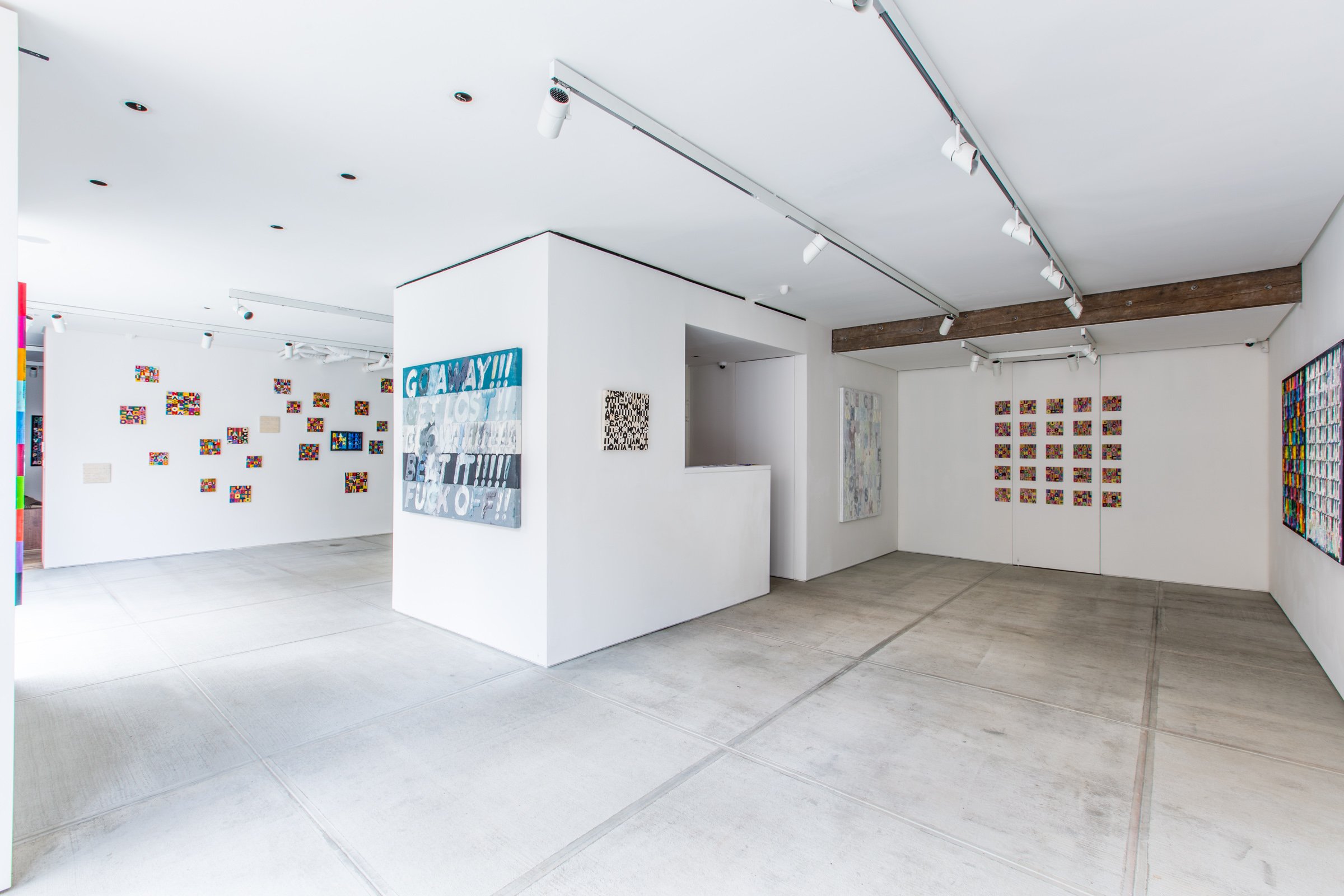
TOTAH gallery is a relative newcomer to the Lower East Side art scene, and brings with it a breath of fresh air. Offering a collaborative space between artist and dealer, its founder David Totah describes the venue as a “cultural hub harboring a variety of projects which transcend the typical definition of a gallery.” Its current exhibition, “Verba Volant Scripta Manent,” features the work of heavy-hitters Mel Bochner and Alighiero Boetti, but the gallery also represents a variety of work by emerging artists as well.
Here, David Totah explains what brought him to the world of dealing, and what art—in particular, the work of Edward Hopper—means to him.
David Totah. Courtesy of TOTAH gallery.
You don’t come from a traditional art background. Tell us about your time in finance, and what led you here.
I grew up surrounded by art and artists. Coming from a family of gallerists and collectors, choosing that career early on would have been the most traditional thing to do. After graduating from college, I entered my professional life in finance in order to gain my independence and live in my city of choice, New York. At 29, I started my own business: a boutique firm specializing in hedge funds investments. Seven years later, however, I was running out of steam. My heart was no longer in it, and I realized that I was ready to do what I was always meant for. I started using our offices as a showcase for the art I was collecting, and gradually transitioned my activities away from finance.
All along, art had been my refuge, a place where I sourced inspiration and passion, an escape from my professional life. My active involvement with art started when I was 19. Not being much of an academic, I decided to educate myself on my own terms, and opening the gallery was the natural next step on my path from art observer to collector, then private dealer. I needed to express my creative side more actively. It is my intention to create a space where creativity and inspiration are in constant dialogue.
Mel Bochner, Meaningless (2015). Courtesy of TOTAH gallery.
How do you select the artists that you represent? How much of the selection process is your personal taste?
I always let myself be guided by my instinct. My selection process for the gallery will be the same as the one I have employed since I started collecting. For me, collecting is forming a conversation with artists who stir the soul; a subtle dialogue where words aren’t always necessary. It’s about surrounding yourself with a familiar energy that makes you feel at home and that sometimes, paradoxically, takes you out of your comfort zone, opening new windows within your subconscious.
The choice of artists will be orchestrated by a mutual and equal convergence towards each other. Good alchemy is the essence of a successful collaboration, and we will build our program gradually and organically based on these principles.
What has been your most memorable experience in the art world?
There have been a few, but the one I’d like to talk about is my connection with Edward Hopper that led to a connection with Wim Wenders. I have always been in love with Edward Hopper’s paintings, and have been drawn towards artists who were able to emulate mystery, solitude, and metaphysical perplexities. A few years ago, I was offered several photographs by Wim Wenders by a friend working in a London gallery. His work resonates with that Hopper-like feeling. One day, I saw one of his photos in an art magazine—Street corner, Butte Montana—so I contacted that London dealer, and asked about that photo. Her answer was that the gallery didn’t have it, but when she saw my determination she was able to obtain one of the two artist’s proofs for me.
I was very excited until she called a few hours later apologizing, and saying that I wouldn’t be able to have the photo until February—we were in August. When I asked why, she said that she had just found that the photos had been selected to introduce the retrospective of Edward Hopper at the Grand Palais in Paris in October 2012. When I walked into the exhibition, the first room had Hopper’s biography on one wall, and Wender’s photo on the opposite wall. That episode led to a conscious recognition that my quest within the arts had to do with soul connections.
Alighiero Boetti, Oggi il quinto giorno dell’ottavo mese dell’anno millenovecentoottantotto (1988). Courtesy of TOTAH gallery.
If you could own any artwork, what would it be and why?
I would want to own two: One would be Edward Hopper’s Soir Bleu. Although I am typically extremely drawn to the very explicitly American atmospheres in Hopper’s work, this painting—a coffee shop scene in Paris—is one that strikes me deeply. The alienation of the clown is underscored by being in the midst of a festive crowd with whom he shares very little. His loneliness among people surpasses any feeling of solitude one can experience in nature, surrounded by no one. There is something otherworldly about him, a melancholic angelic figure who has to cope with being on earth, surrounded by beings he is unable to connect with.
The second one is a Barnett Newman zip painting, more specifically, Onement VI. Its silent strength and rigor eradicates any excess of sentimentalism, an antidote for melancholia despite the blue color. The lack of ornament and its bold simplicity in transmitting a message that needs no explanations makes it monumentally powerful. Despite the abstract nature of the painting, Newman is able to express a metaphysical statement and enable us to wonder through this vertical aperture, like a portal towards another dimension, plunging us into the immensity of the infinite.
The artnet Gallery Network is a community of the world’s leading galleries offering artworks by today’s most collected artists. Learn more about becoming a member here, or explore our member galleries here.